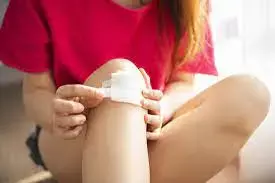- Home
- Medical news & Guidelines
- Anesthesiology
- Cardiology and CTVS
- Critical Care
- Dentistry
- Dermatology
- Diabetes and Endocrinology
- ENT
- Gastroenterology
- Medicine
- Nephrology
- Neurology
- Obstretics-Gynaecology
- Oncology
- Ophthalmology
- Orthopaedics
- Pediatrics-Neonatology
- Psychiatry
- Pulmonology
- Radiology
- Surgery
- Urology
- Laboratory Medicine
- Diet
- Nursing
- Paramedical
- Physiotherapy
- Health news
- Fact Check
- Bone Health Fact Check
- Brain Health Fact Check
- Cancer Related Fact Check
- Child Care Fact Check
- Dental and oral health fact check
- Diabetes and metabolic health fact check
- Diet and Nutrition Fact Check
- Eye and ENT Care Fact Check
- Fitness fact check
- Gut health fact check
- Heart health fact check
- Kidney health fact check
- Medical education fact check
- Men's health fact check
- Respiratory fact check
- Skin and hair care fact check
- Vaccine and Immunization fact check
- Women's health fact check
- AYUSH
- State News
- Andaman and Nicobar Islands
- Andhra Pradesh
- Arunachal Pradesh
- Assam
- Bihar
- Chandigarh
- Chattisgarh
- Dadra and Nagar Haveli
- Daman and Diu
- Delhi
- Goa
- Gujarat
- Haryana
- Himachal Pradesh
- Jammu & Kashmir
- Jharkhand
- Karnataka
- Kerala
- Ladakh
- Lakshadweep
- Madhya Pradesh
- Maharashtra
- Manipur
- Meghalaya
- Mizoram
- Nagaland
- Odisha
- Puducherry
- Punjab
- Rajasthan
- Sikkim
- Tamil Nadu
- Telangana
- Tripura
- Uttar Pradesh
- Uttrakhand
- West Bengal
- Medical Education
- Industry
Flaps or grafts increase surgical site infection risk among lower extremity MMS cases: Study

Flaps or grafts for closure of lower extremity larger wound sizes are associated with an increased risk of surgical site infection in lower extremity MMS cases, according to a recent study published in Dermatologic Surgery.
A surgical site infection is an infection that occurs after surgery in the part of the body where the surgery took place. Surgical site infections can sometimes be superficial infections involving the skin only. Other surgical site infections are more serious and can involve tissues under the skin, organs, or implanted material. Surgical site infection (SSI) is the most common complication for Mohs micrographic surgery (MMS). It is a surgical procedure used to treat skin cancer. Individual layers of cancer tissue are removed and examined under a microscope one at a time until all cancer tissue has been removed. Also called Mohs surgery. Lower extremity surgical sites are at an increased risk for developing SSI.
This study aimed to evaluate lower extremity SSI rates post-MMS based on closure type and antibiotic usage. A retrospective review was performed of all lower extremity MMS cases from 2011 to 2016 at Vanderbilt University Medical Center. Patient history, surgical details, and follow-up appointments were reviewed.
The Results of the study are as follows:
Six hundred twenty MMS lower extremity surgeries were eligible. The review identified an overall lower extremity SSI rate of 7.4%. Infection rates were significantly increased in wounds closed by flaps/grafts (p < .001). Although wound size and preoperative antibiotic prophylaxis were initially associated with increased infection rate (p = .03, p = .015), the associations were fully attenuated when adjusting for closure type.
Thus, the researchers concluded that more complicated repair techniques (flap/graft) for larger wound sizes contribute to increased SSI risk among lower extremity MMS cases. Providers can use this information to guide antibiotic prophylaxis.
Reference:
Characteristics of Lower Extremity Infection Rates Following Mohs Micrographic Surgery by Niklinska, Eva et al. published in the Dermatologic Surgery.
Dr. Shravani Dali has completed her BDS from Pravara institute of medical sciences, loni. Following which she extensively worked in the healthcare sector for 2+ years. She has been actively involved in writing blogs in field of health and wellness. Currently she is pursuing her Masters of public health-health administration from Tata institute of social sciences. She can be contacted at editorial@medicaldialogues.in.
Dr Kamal Kant Kohli-MBBS, DTCD- a chest specialist with more than 30 years of practice and a flair for writing clinical articles, Dr Kamal Kant Kohli joined Medical Dialogues as a Chief Editor of Medical News. Besides writing articles, as an editor, he proofreads and verifies all the medical content published on Medical Dialogues including those coming from journals, studies,medical conferences,guidelines etc. Email: drkohli@medicaldialogues.in. Contact no. 011-43720751


